Canadian and International Politics,Grade 12th,University Preparation (CPW4U)


-
Name:Canadian and International Politics,Grade 12th,University Preparation (CPW4U)
-
Grade:Grade 12th
-
Prereq:None
-
Code:CPW4U
-
Type:University Preparation
-
Credit Value:1
-
Develop Date:2021-04-01
-
Course Price:CAD $1300
-
Status:Active
Course Description:
This course explores various viewpoints on issues in Canadian and world politics. Students will investigate political decision making and ways in which individuals, stakeholder groups, and various institutions, including governments, multinational corporations, and non-governmental organizations, counter to and work to address domestic and international issues. Students will apply the concepts of political thinking and the political inquiry process to investigate issues, events, and developments of national and international political importance, and to develop and meet enlightened opinions about them.
Aims and Objectives:
- Evaluate concepts of political thinking when exploring issues, events and developments of international political.
- Evaluate the investigations related to politics.
- Demonstrate various careers in which a background in political studies might be an asset.
- Demonstrate the political ideas demonstrate an understanding of many political ideologies, theories, and concepts, and analysis.
- Evaluate the Canadian and international politics.
- Examine the role of ideology in growth of politics.
- Evaluate diplomacy and conflict, as well as conflict related to decolonization in the growth of politics.
- Examine how social, economic, and geographic factors involve and influence contemporary politics.
- Examine that how strategies/practices used by a state.
- Examine Canada’s foreign policy aims.
- Evaluate the aims and factors that affect foreign policy.
- Examine the role of national awareness and responsibility.
- Examine the role of national awareness and responsibility among citizens.
- Evaluate effectiveness of many non-governmental stakeholders.
Expectations:
- Introduction of history, politics and global citizenship:
By the end of this course, students will:
- Demonstrate an understanding of many political ideologies, theories, and concepts, and analyse their relevance to Canadian and international politics.
- Evaluate the growth of Modern Politics and international relations; examine the role of ideology, diplomacy and conflict, as well as conflict related to decolonization in the growth of politics in the relation between many countries around the world in the past.
- Examine how social, economic, and geographic factors affect the politics of Canada.
- Political ideologies
By the end of this course, students will:
- Consider the concepts of political thinking when exploring the events occurs in the conventional politics.
- Evaluate the evolving transferable skills through investigations related to politics.
- Identify various careers in which a background in political studies might be an asset.
- The politics of internationalization
By the end of this course, students will:
- Demonstrate an understanding of many political ideologies, theories, and concepts, and analyses their relevance to Canadian and international politics.
- Examine the growth of Modern Politics and international relations.
- Examine the role of ideology, diplomacy and conflict.
- Evaluate the difference between the Control on Canadian and International Politics.
- Rights and power in the international community
By the end of this course, students will:
- Examine the International control of administration or directorate.
- Illustrate an understating of the role of rapprochement cooperation in international politics.
- Examine Canada’s foreign policy aims and factors that affect them.
Unit-wise Progression:
|
Unit
|
Title and Subtopics |
|
Unit 1 |
Introduction of history, politics and global citizenship
- Hours: 22 |
|
Unit 2 |
Political ideologies
- Hours :35 |
|
Mid-Term - Hours: 2 |
|
|
Unit 3 |
The politics of internationalization
- Hours: 22 |
|
Unit 4 |
Rights and power in the international community
- Hours: 22 |
|
Culminating Activity – 4 Hours |
|
|
Final Term – 3 Hours |
|
|
Total – Hours 110 |
|
Teaching/Learning Methodologies:
The Canadian and international politics course will prepare students for a life of responsible citizenship in which they think critically about international politics and role of Canada in Global world. In the Politics courses, the goal is to help students develop a sense of responsibility. Developing an understanding of how to influence change within the diverse communities to which they belong, and of how individuals and groups can participate in action that promotes change;
- Analyzing current political issues, and assessing methods and processes that can be used to influence relevant political systems to act for the common good.
- Assessing the power and influence of different people involved in civic issues, using political perspective.
- Developing a respect and appreciation for different points of view on various political issues.
A few of the things students will be provided are the following:
- Lesson plans
- PowerPoint presentations
- Videos
- Reading Packs
- Assignment for Learning
- Assessment of Learning
- Quiz
All of these are a cluster of downloadable and embedded files that will be provided to each candidate with the progression of the course.
E-Learning Approach:
E-learning is not only a training method but it is a learning method that is tailored to individuals. It is found that different terminologies have been used to define learning that takes place online which actually makes difficult to develop a generic definition.
E-learning includes the delivery of content via Internet, Intranet, and Extranet, satellite broadcast, audio-video tape, interactive TV and CD-ROM. The term implies that the learner is at a distance from the tutor or instructor, that the learner uses some form of technology.
With attention to this new system of education that is spreading across the globe it’s imperative that the content of such study programs are enhanced and modified to serve both the learner and the instructor well whilst dealing with the gap of conventional studying methodologies. Thus the courses promise its reader an experience full of engagement, student-concentric approach, personalization and Interaction. Using a wide array of multimedia tools, cloud based LMS and diverse repository of subject tailored audio-visual material that student can utilize and learn in a stimulated work environment where he’s in charge of his work hours.
Our e-learners paddle through these courses in the mediation of skilled mentors to the finish line with understanding of their subject’s application into real world problems following a futuristic model of education.
Strategies for Assessment and Evaluation of Student Performance:
Assessment is the ongoing gathering of information related to the individual student’s progress in achieving the curriculum expectations of the course. To guide the student to his/her optimum level of achievement, the teacher provides consistent and detailed feedback and guidance leading to improvement. Strategies may include:
- Diagnostic assessment
- Formative assessment
- Summative assessment
- Performance assessment
- Portfolio assessment
- Rubrics
- Checklists
The final grade will be based on:
|
Weightage in Percentage
|
Categorical Marking Breakdown |
|
45% |
Course Work |
|
15% |
Mid Term |
|
10% |
Culminating Activity |
|
30% |
Final Exam |
|
Assessment of Learning
|
||
|
Student Product |
Observation |
Conversation |
|
Learning Logs (anecdotal) Assignment Pre-tests (scale/rubric) Quizzes (scale/rubric) Rough drafts (rubric) Graphic organizers (scale) Peer feedback (anecdotal/checklist) Reports (rubric) Essays (rubric) Webbing/Mapping (rubric/scale) Vocabulary notebooks (anecdotal) Visual Thinking Networks (rubric) Tests (scale/rubric) Exams
|
Self-proofreading (checklist) Class discussions (anecdotal) Debate (rubric) PowerPoint presentations (rubric) Performance tasks (anecdotal/scale)
|
Student teacher conferences (checklist) Debate (rubric) Peer-feedback (anecdotal) Peer-editing (anecdotal) Oral pre-tests (scale/rubric) Oral quizzes (scale/rubric) Oral tests (scale/rubric) Question and Answer Session (checklist)
|
Resources Required by the Student:
- Microsoft Suite (Word, Excel, Power-point etc.)
- A laptop, or Mac, or Android, or any other operating system functional enough to use the web browser and use online software’s.
- Curriculum Reference: The Ontario Curriculum, Canadian and World Studies







